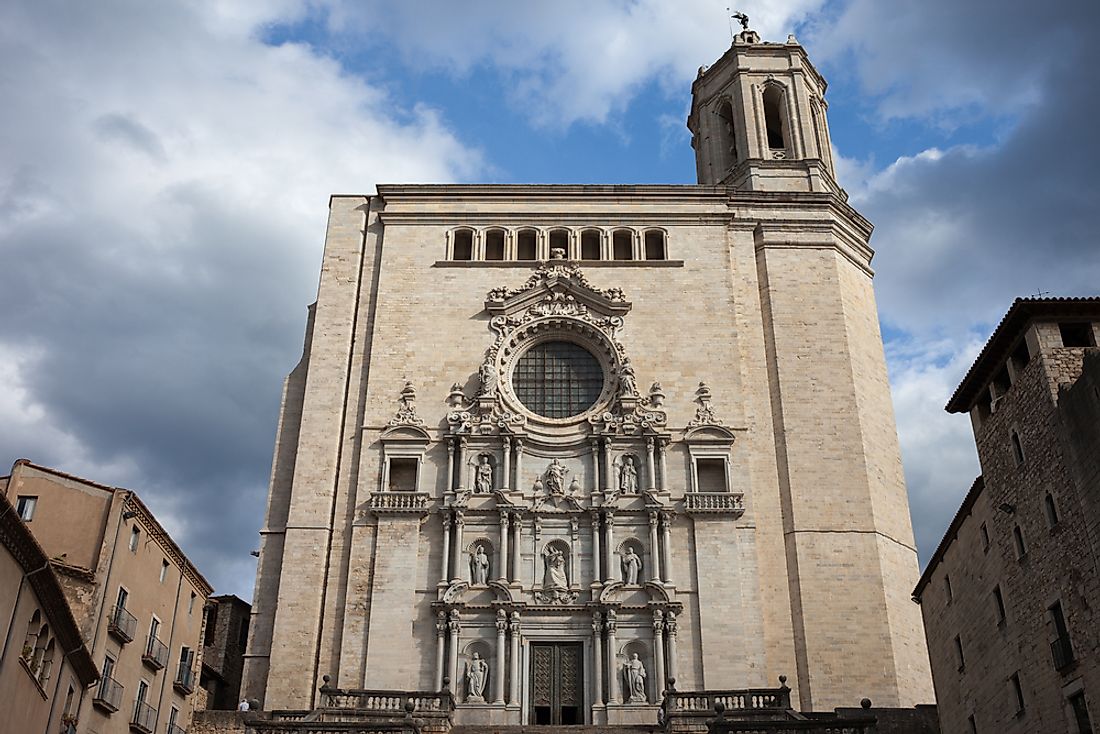The Catalan People - Cultures around the World

5. Description
The people living in the Catalonia region located in the northeast of Spain are known as Catalonian or Catalan. Some of these people are also living in Andorra, the Balearic Islands, the Pyrenees Orientals, and Valencia. Catalans are considered to be originally of Roman origin, coming to the Iberian Peninsula as Rome spread its sphere of influence into the area after its wars with Carthage. Another set of outsider, the Greeks, first arrived in this region even earlier, during the 6th Century BC. Afterwards, the region was ruled by the Romans for more than 300 years. The majority of Catalan people speak Catalan, though Spanish is also an official language. Those who are in the tourism sector are typically fluent in English as well. Many Catalans also live across the French border and in Latin America, due to Spanish Colonization in the area, especially Argentina.
4. Architecture
The Catalan people are known for their distinct Gothic style of architecture. The style was mainly developed between the 13th and 15th Centuries, and is different from that of the rest of the Europe in the sense that it does not emphasize the height of its buildings, but rather a balance between a building’s height with its width. There are also other dissimilarities from the popular Gothic style architecture of elsewhere, such as having fewer windows, less decoration, an absence of pinnacles, little importance given to stained glass, and many more. Santa Maria Del Pi is one of the typical examples of a church built in the Catalan Gothic style of architecture. Following industrialization, only a small number of Catalans continue to live in the rural areas, so many of the smaller cathedrals, despite their skilled craftsmanship, are seldom used today.
3. Cuisine
The cuisine of Catalonia is a sophisticated one. Like that to its southeast, it boasts of Mediterranean flavors like olive oil, onions, tomatoes, and garlic. Mushrooms are grown in plentiful quantities in the region, and thus are a regular ingredient in Catalan cuisine as well. These are especially used in various savory soups, stews, and sauces. The staple snack of these people is pa ambtomaquet, which is a toasted bread with a spread of olive oil, tomato, and salt. The cuisine is also complex with salty flavors mixed with sweet, and vice-versa, in many dishes. Also, meat is often uniquely paired with fruits and seafood.
2. Cultural Significance
The Catalan people have a rich culture, and have contributed immensely in the fields of literature, arts, and sports. A few of the many Catalans worth mentioning in this regard include Antoni Gaudí and Josep Puig I Cadafalch in architecture, Pablo Picasso and Joan Miró in painting, Salvador Espriu and Llorenç in literature, and Montserrat Caballé and José Carreras in the world of music. The Catalonian people have always excelled in sports, too. In fact, FC Barcelona is more than a mere football club for many Catalans, and is associated more with their cultural pride as a whole. It is also often considered to be one of the greatest professional sports teams in the world.
1. Threats
The Catalan culture in the past has experienced many challenges in efforts to maintain its distinct identity. It has been suppressed throughout the course of the history. The Spanish General Francisco Franco even banned the use of the Catalan language in schools and religious services during his reign. He also put an end of the usage of all the popular images of the culture and symbols of Catalan nationalism. However, the culture survived all threats, outliving Franco's regime. Catalans have now fiercely raised their voice for their independence from Spain, to form their own new state within the European Union. In fact, a pro-independence coalition has been formed as recently as the 10th of January, 2016. Due to its alleged ties with the Franco regime, many Catalans have also given up their longstanding ties with the Spanish Catholic Church over the past three decades.







